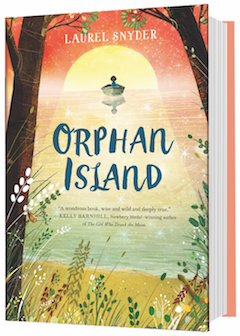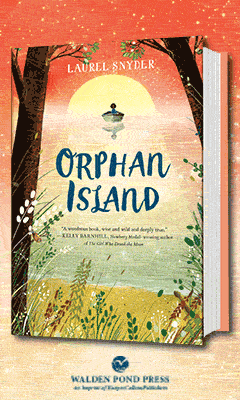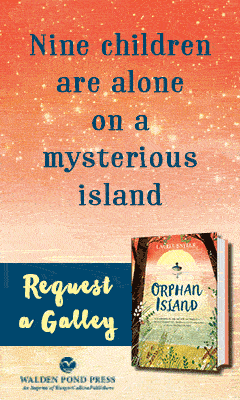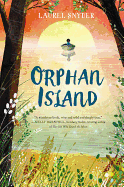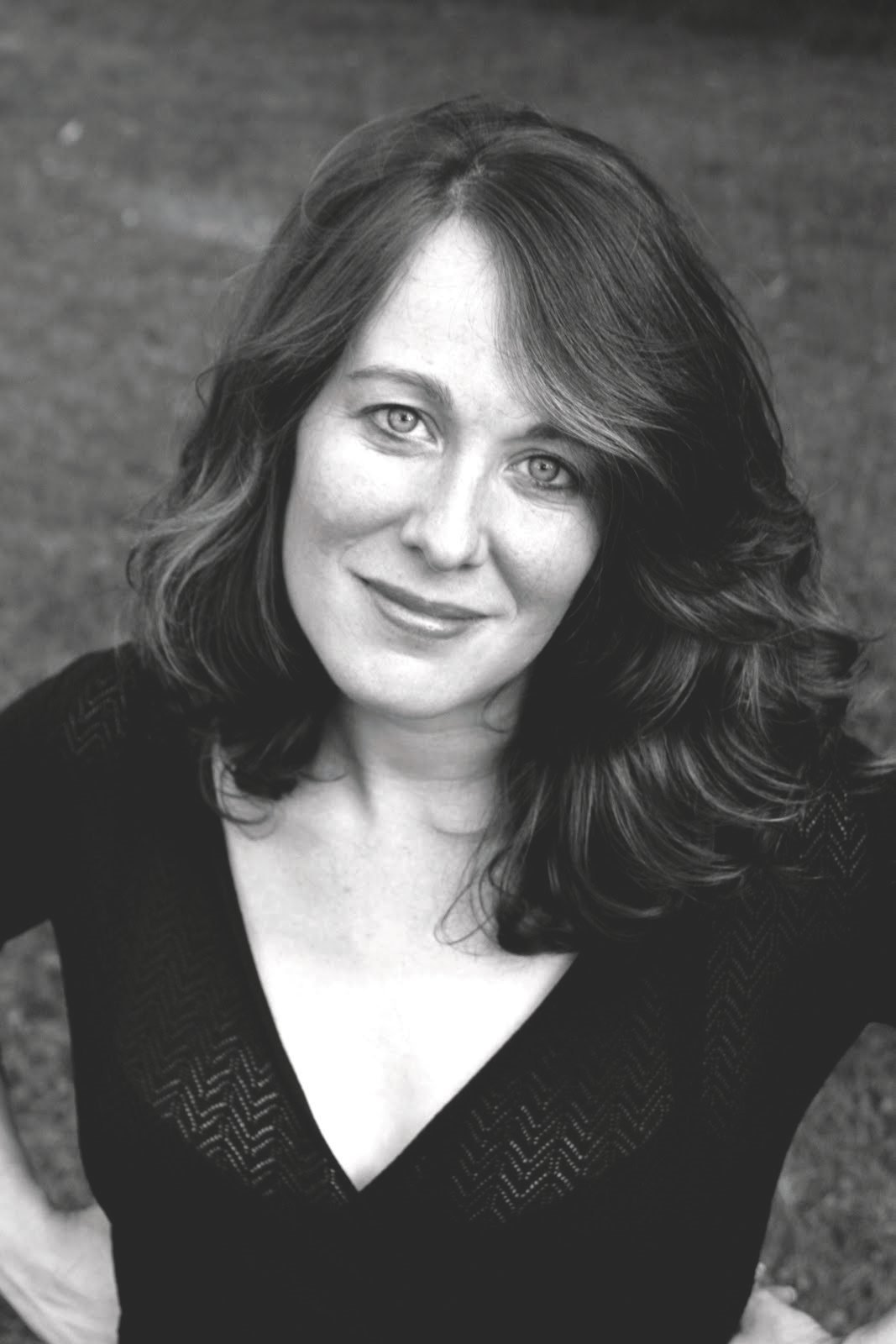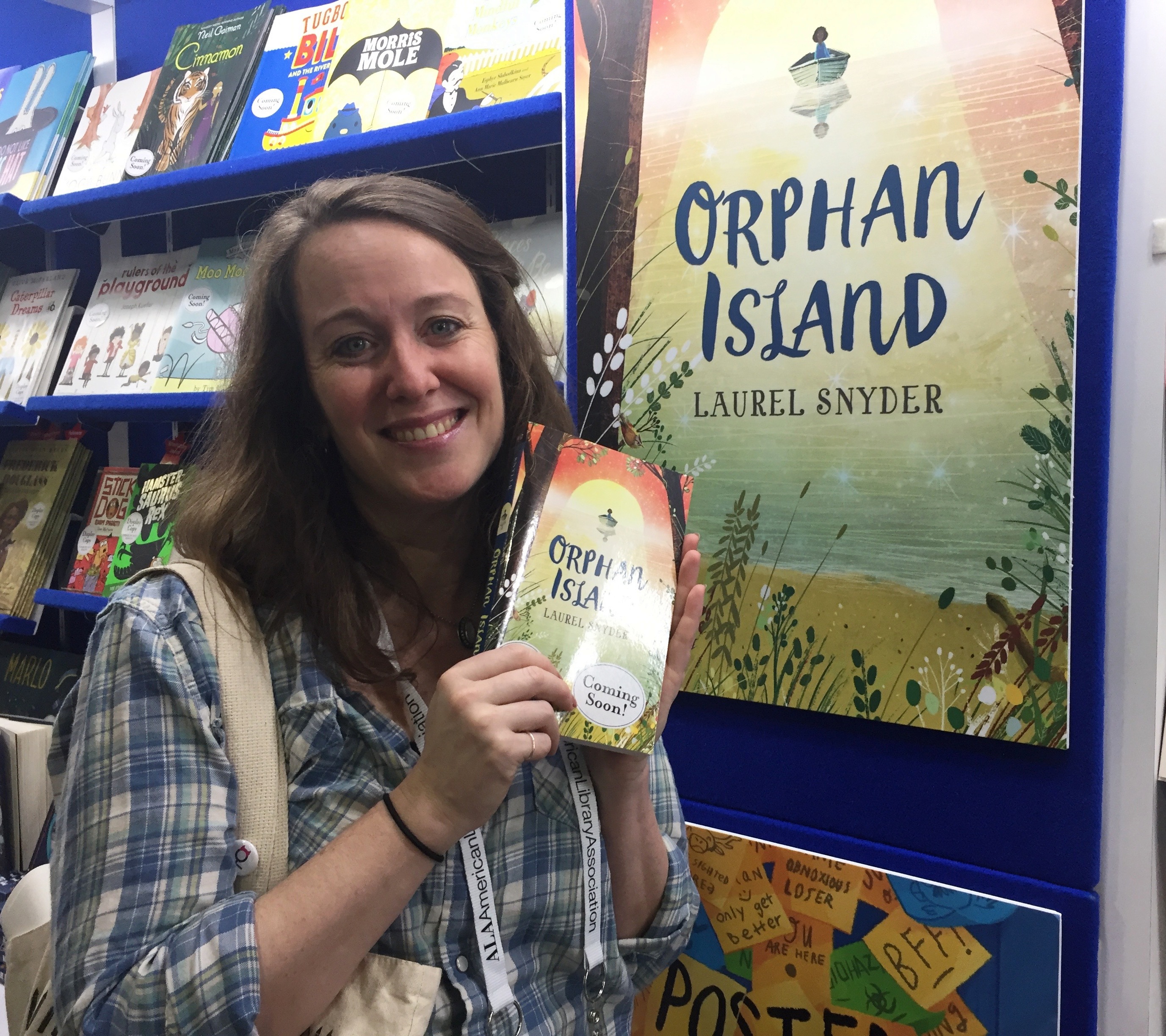Orphan Island
by Laurel Snyder
Every year or so--though it's hard to tell when there are no calendars--a small green boat comes to a mist-encircled island that's inhabited by nine children. The boat brings one new child from parts unknown, and takes away the oldest child, the Elder. It always follows the same path through the water "[a]s if pulled by an invisible string."
There's "a silly little song" all the kids know by heart: "Nine on an island, orphans all/ Any more--the sky might fall." The children don't know exactly how to decipher that warning, but they trust the very worst will happen if the oldest child refuses to leave when the small green boat beckons. That's why no Elder risks staying on shore, as heart-wrenching and terrifying as it is to abruptly leave one's only known family for uncharted territory, perhaps even "over the edge of the earth" or "into the jaws of some ravening sea creature."
Orphan Island by Laurel Snyder (The Longest Night; Bigger than a Bread Box; Seven Stories Up) begins with the ringing of the bell that signals the "Changing" ceremony: "At the cove, they lined up, breathless and staring out to sea, to watch the boat come in against the sunset. They stood waiting like uneven fence posts." It's tall, brooding Deen's turn to leave the island, and Jinny, the main character, isn't fully cognizant of how heartbroken she is to see her best friend go. His departure officially makes her the Elder, meaning she is now charged with taking care of "Ess," the damp little girl with black curls and stunned, huge brown eyes who has just arrived in the boat. Jinny hopes Ess will quickly learn to forget the "mama" she asks for--on the island, mothers, like "dragons or birthdays," exist only in books.
Jinny the Elder poignantly, or comically, but rarely successfully attempts to teach Ess three basic survival requirements: cooking, swimming and reading. Any caregiver, young or old, will relate to Jinny's love, exasperation, fierce protective instincts and dismaying feelings of inadequacy. Still, as Jinny and Ess spend their days together accidentally making chicken eggs explode, screaming and shrieking in the water ("Ess no, no, no, no like swimming") and writing the letter A (for abalone) in the sand, it's heartwarming to witness the growing closeness between the two.
Children may also revel in the particulars of how the orphan family manages their little village, how they forage for snails in tide pools ("Snail get sad, when I eat him up?" asks Ess), harvest honey from beehives, pick and dry fruit, dig for clams, fish with nets and cook in their outdoor kitchen. The orphans wash themselves and their laundry by putting on all their clothes at once and wading into the water, then letting the sun bake them dry. Life is civil and orderly, but with enough natural crankiness and conflict between the children to be realistic. Though there are no adults present, this is no Lord of the Flies.
What is this utopian island, whose beauty and bounty are so vividly, invitingly described by Snyder? The mystery of how the island "works" supplies a great deal of suspense, along with an underlying sense of foreboding. None of the children know why the island is the way it is, or why they dutifully follow rules, such as abandoning their shoes in a sacred heap upon arrival, or why they don't eat "scuttles," their word for crabs. Who was the critical bookworm from long ago named Abigail Ellis who left a whole library of snarkily annotated books about "wars, unicorns and something called chocolate," now disintegrating from the salt air and voracious reading?
What the orphans do know is that the island protects them. It is safe. They can even playfully throw themselves off the cliffs and the breezes will catch them. The snakes don't bite like "in storybooks." Jinny discovers a hidden letter from Abigail to her mother, but wasn't Abigail an orphan, too? Why on earth would living parents ship their children off to a remote island? Jinny keeps this startling new information to herself, as she does most of her innermost thoughts. Jinny is likable, but prickly, and struggles with her peers' general perception that she always gets her way. Indeed, Jinny's rocky emotional landscape will hook readers as much as the magical setting.
The creeping feeling that something bad is going to happen intensifies when Jinny takes her first lone, terrifying swim in the vast, dangerous sea no one ever claimed was safe. As the orphans' deep sense of security starts to fray around the edges, readers might wonder... will the sky fall? Will the snakes start biting and the breezes no longer usher cliff-jumpers back to safety? What will Jinny do when it's her turn to get on the small green boat? Will she be able to leave her now-beloved Ess? Snyder, with her engaging and lucid prose, gets to the core of what makes the human heart beat faster, be it terror or love. Orphan Island is full of adventure, delight, tenderness, questioning, loss, fear of the unknown and the lure of it. This enormously appealing island paradise and its unexplained mysteries will leave readers begging for more. --Karin Snelson



